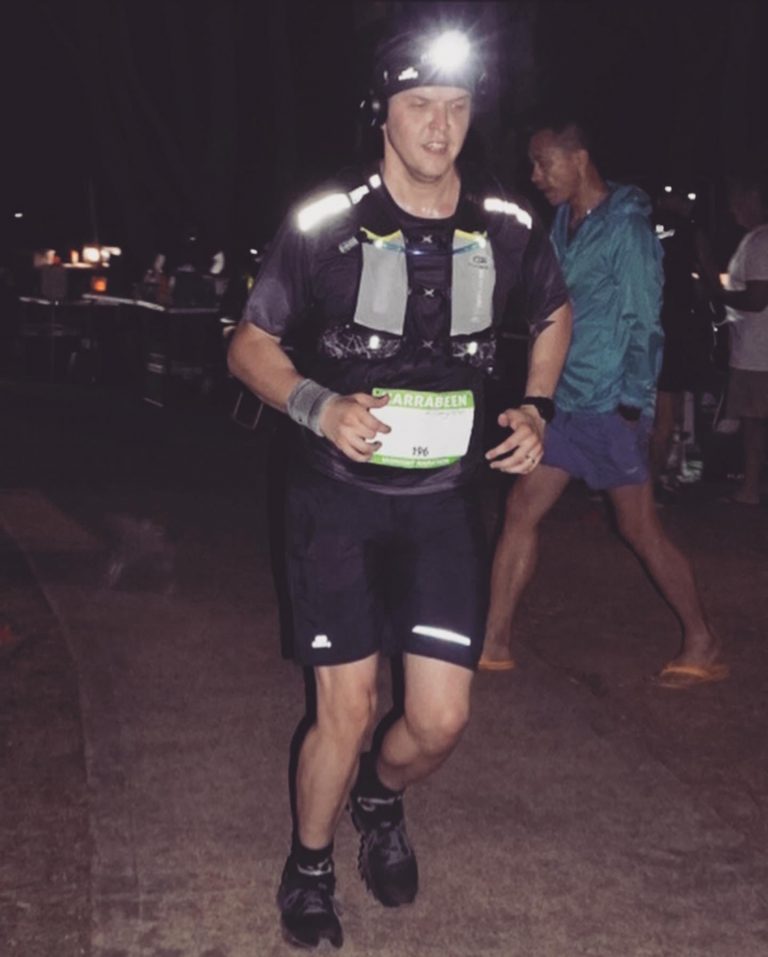I have been cycling for a few months before I started training for a triathlon. Back then, it was only a simple exercise for me so I was only hitting around 30 to 35kph. But when I decided to train in amateur multisport racing, I took cycling seriously and practiced more to improve my speed and endurance.
I read and researched all the things I can do to improve my cycling performance. Then, I try my best to execute everything I have learned from articles and blogs to my cycling training and triathlons. And I can confidently say they help me level up my skills as well as my riding style.
I want to be able to help my fellow cycling enthusiasts, whether you are a casual cyclist or a pro, so I compiled the list of top cycling tips every cyclist should know that you can use to improve your riding performance.
I’m by no means Lance Armstrong or a cycling specialist, but these are the tips I’ve come across that may also be of help to you.
Top 10 Cycling Tips And Hacks Every Cyclist Should Know
1. Save the efforts for the end
Instead of wasting intervals 15 or 20 minutes into your cycling while your stamina is still at its peak, you should save it for the last leg of your ride when you are almost exhausted.
Doing so will help you improve your mental endurance and performance efficiency. This method will not only give you physical rewards but will also level up your mental state as you do your cycling. You don’t want to experience pain in your knees when they burn out from cycling too fast from the get go.
2. Learn to ride steady
Pros often spend a lot of time riding at a steady pace from start to finish to build and maintain a stable foundation of endurance fitness. For you to be able to do this, you must learn how to properly position your body on your bike. It may sound simple, but this is something that even experienced riders had to struggle with.
I suggest you learn how to do a good neutral position on your bike. A good neutral riding position begins with the head and goes all the way to your feet. You must be able to relax your shoulders, bend your elbows well, maintain a straight line from your elbows through your fingers, maintain a neutral spine, and make sure your knees are tracking over the ball of your foot or pedal.
Check the below video on good bike position techniques:
They may seem quite a lot to take in but with continuous practice, I’m sure you will be able to execute all of this naturally.
Also, there is an instance where cyclists often experience their hands going numb after taking a ride. Generally, your fingers and hands will go numb because they are not receiving proper blood flow or circulation.
Riding with your arms straight puts a lot of weight in your hands and on your handlebars. You must make sure your wrist alignment is straight so your hands could get proper blood circulation.
3. Take a break
It may seem like a waste of time, especially if you are preparing for your first racing event, but taking a break from cycling can help you relieve stress from all the training you’ve endured for months.
Many pros do this and they sometimes take about two to four weeks off the bike. However, the length of your break still depends on your preference. It is good to allow the body to get the rest it deserves. This recovery period allows your body to better handle more stress in months to come.
4. Learn to consume food that can improve your performance
Good nutrition can enhance your sporting performance. A well-planned, nutritious, balanced diet will meet most of your vitamin and mineral needs, and will also provide you with enough protein to promote muscle growth and repair. Foods rich in unrefined carbohydrates such as wholegrain bread and cereal should be the main basis of the diet.
If you are training for more than 60 minutes, carbohydrate intake is required to increase blood glucose levels and delay fatigue. About 30-60 grams of carbohydrates are recommended and they could be in the form of lollies, sports gels, low-fat muesli, sports bar, and sandwiches.
I’ve also previously talked about why I like energy chews for running. Coupled together with electrolyte tablets like SaltStick’s and you’ll prevent cramping occurring. Because of the fact that they’re easily consumeable, you can take them on the run. I do use them for cycling as well however running is what introduced me to these chews and gels such as the GU’s on the right.
Some people even take salted baked potatoes, to get their electrolyte fix. I do prefer the products though over home-made stuff and they work pretty well for me.
It is important to begin your intake early in exercise and to consume regular amounts throughout the training period. It is also important to consumer fluids throughout your cycling routine to avoid dehydration. Sports drinks, diluted fruit juice, and water are ideal options. Meanwhile, for people training for more than four hours, up to 90 grams of carbohydrates per hour is advisable.
After your cycling exercise, it is important to replace glycogen in your body as soon as possible. You should consume carbohydrate-rich food and drinks following your training. You can also try using nutritional supplements to improve your cycling performance.
Before using supplements, however, you should seek the advice of a qualified health professional because vitamin and mineral supplements are potentially dangerous. Always read the label to ensure it doesn’t have anything you’re allergic to.
5. Stay connected to your bike
Maintaining your connection with your bike is important for your continued passion for cycling. You need to remember why you love riding your bike and why you are doing your cycling. You should be able to appreciate the experience the bike gives you which could provide you with more reason to take care of it before each ride.
Taking care of your bike is beneficial for your cycling performance. Making sure your bike doesn’t get damaged or deteriorate can help you save some bucks because it is your main investment as a cyclist. It is important to check and clean your bike as often as you can. It will help you identify problems at the onset, preventing further damage and safety hazards.
I also suggest you take your bike to a repair shop for regular inspection to ensure it is performing well, especially if you’re competing in a triathlon or another long endurance event.
6. Get enough sleep
Sleep is critical for better cycling performance, so be mindful of your healthy bedtime habits. Do not eat dinner late as it can interrupt your morning appetite, and you will have trouble sleeping because your body is still digesting the food you ate. Going to bed a little bit hungry can also help you maintain your ideal weight.
I also recommend you to take an afternoon nap to refuel your body after your long rides. However, avoid sleeping after 3 pm as it can interfere with your sleep at night.
Also, sleeping is the key to having a healthy heart and immune system. Having proper rest and sleep is as important as having a balanced diet and a good training plan for optimum cycling performance. Ensuring you get adequate sleep will means you can prevent injury while cycling. Being tired makes your body cramp and your overall performance decreases.
7. Have a training plan
It is impossible to suggest the same training plan for everyone. However, finding the appropriate one for you can help you make the most out of your cycling routine. Training time will help you schedule your form properly. It can also help you avoid overtraining, and will motivate you to continue practicing the next day.
If you are pro, usually your trainers are the ones designing your training plan, just like in my case. That is why for some people, making their own training plan can be a bit overwhelming. However, knowing these easy steps can help you simplify the process.
 Firstly, you must set your goals. What do you want to accomplish this season? You must be specific with the details, and it should be both realistic yet challenging. Next, evaluate your race demands. The nature of your training will depend upon your race demands.
Firstly, you must set your goals. What do you want to accomplish this season? You must be specific with the details, and it should be both realistic yet challenging. Next, evaluate your race demands. The nature of your training will depend upon your race demands.
The majority of your training plan should reflect the certain demands of your chosen goal event. Then, you must establish your own calendar so you would know how many weeks you have to train.
Your next step will be to periodize. Divide the weeks you have to train into focused periods. Also, you must remember to take a recovery week after 3-4 weeks of training period where workouts and training should be lighter and shorter.
Another thing you must keep in mind is you should strictly follow the plan you made. Sticking to your plan can help you achieve the results you desire, and you must also be patient in doing so.
8. Take cycling seriously, but not too seriously
Never forget that the reason why you ride your bike is for the sake of enjoying it. Progress, success, and possible career out of cycling are just by-products, but being able to avoid unnecessary pressure can help you get a better cycling routine. If you are feeling stressed because of riding, you should address what is wrong there.
One of the possible factors why cyclists felt worn-out is because they are comparing themselves and their progress to others. It’s easy to get caught up in these comparisons.
Sometimes, they can motivate us to push ourselves to our limits and force ourselves to improve. However, comparison can hinder your performance because you are worrying too much about unnecessary things.
Rather than focusing on others, keep your attention to yourself by tracking your performance and progress. Having a good mindset is the key, so think positively and do what you need to do to ride your best.
9. Choose a coach who can help you improve
Of course, for some who use cycling as their pastime, this one is not necessary. But if you want to take cycling seriously and want to be able to compete in cycling competitions, I suggest you find a coach you trust and believe in.
Trust is crucial in any kind of relationship, so having a coach you are happy and comfortable with can help guide you on accomplishing your goals.
Getting guidance from an expert who knows you and your abilities and limitations can help you see things from a different perspective. It’s nice to have someone who can help explain to you how to do something rather than figuring it out on your own.
Also, coaches are usually good at helping you work on your weaknesses, and he must be someone who can provide you with advice from other athletes they’ve worked with.
10. Train with other cyclists
Training with your fellow cyclists allows you to watch and understand how they ride, which can also help you learn new techniques and skills. Riding in a group can also expose some of your weaknesses and strengths.
It’s always best to ride with others who are better cyclists than you. Many of them can provide positive criticisms regarding your riding level. For beginners, surrounding yourself with cyclists more skilled than you is important because they could provide answers to your questions on how to become a better cyclist.
Conclusion
Cycling is a wonderful endurance workout that keeps you active and fit. However, it is important to know the important hacks that can help you make the most out of riding your bike, whether you are a casual cyclist of a pro. I love smashing the pedals of my bike after a long day of work to release the stress from work and is part of the reason I ride to my job in the city quite a lot.
If you’re getting more serious about cycling and especially if you’re riding road bikes then you may want to up your game. If you haven’t heard about Vo2 Max check out this post I did on it. It’s a marker used to determine how efficiently your heart and lungs work when riding your bike. By increasing your Vo2 Max you can improve your cycling performance.
Researching other helpful tips is also important because it can help you figure out what does and does not work for you. I hope these tips I listed down will help you with your cycling journey. If there is any other advice you want to share with your fellow riders, please let me know in the comment section below. Happy cycling!
Sources:
https://www.bicycling.com/training/g20028677/6-pro-training-hacks-any-cyclist-can-use/
https://www.betterhealth.vic.gov.au/health/healthyliving/sporting-performance-and-food
https://www.google.com/amp/s/cyclingtips.com/2010/09/the-importance-of-a-training-plan/amp/
https://www.redbull.com/gb-en/pro-cyclist-tips-to-make-it-to-the-top

Marko Rakic is a trail runner and fitness enthusiast from Sydney, Australia. He is the lead writer for The Ultimate Primate and believes the best way to live a happy life is through constantly challenging yourself.

